Arne Slot was supposed to be preparing for a season defined by defending a Premier League title. Instead, he finds himself facing something that strips football of all its usual importance.
The death of Diogo Jota has left Liverpool with a grief no trophy can ease and a void no tactical reshuffle can fill.
It is a loss that will test the club’s unity and humanity far more than any contest for silverware.
This was never in the manual. No coaching course teaches you how to lead a squad through this kind of heartbreak.
Last summer, Slot arrived to take on the unenviable task of succeeding Jurgen Klopp. He did that with composure, bringing the league title back to Anfield at the first attempt.
But this is different. This is the moment when the strength of a manager and of a club is measured not by press conferences or training sessions but by the quiet compassion that surrounds people when there are no right words.
Slot’s quiet leadership
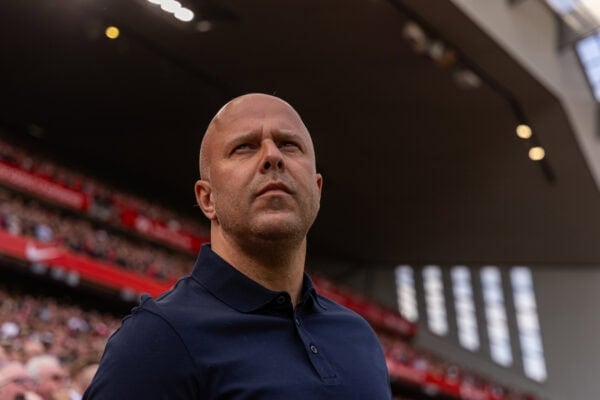
Some will inevitably look to the past for comparisons. They’ll remember Sir Kenny Dalglish, a figure who embodied strength and care when Liverpool needed it most. His quiet presence and unwavering empathy became part of the club’s story.
But Slot doesn’t have to be Kenny. He doesn’t have to recite the same words or bear the same burden in the same way. Just as he did 12 months ago, when he arrived and proved he could lead in his own way, Slot has to remain true to who he is.
And in truth, he’s already shown what kind of man he is. From the day he walked through Anfield’s doors, he has carried himself with a calm decency that earned genuine respect. His initial tribute to Diogo made that clear.
In his statement, Slot spoke from the heart: “What to say? … My first thoughts are not those of a football manager. They are of a father, a son, a brother and an uncle… you will never walk alone. The players, the staff, the supporters… are all with you.”
He called Jota “the essence of what a Liverpool player should be” and acknowledged the absolute shock shared across the club. All anyone will expect is honesty from a man who understands what this moment requires.
The bonds between players
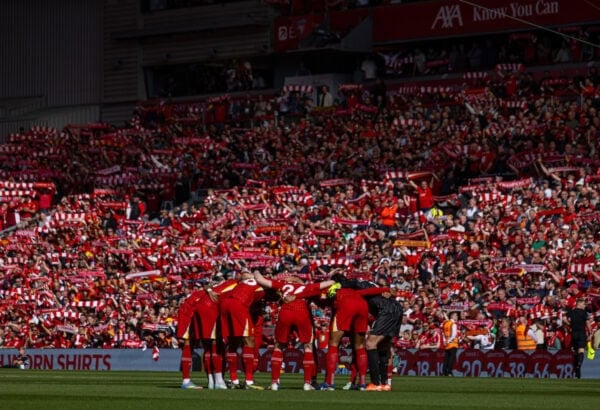
Grief doesn’t come in uniform. It doesn’t follow any script or respect any timetable. Some players will show it in the rawest, most visible ways, in tears on the pitch or in moments when they can’t hold it together. Others will look composed until something small breaks the surface.
For some, this may be the first time life has shown how suddenly everything can change. For others, it will be a familiar pain they have carried before.
We shouldn’t underestimate how close these bonds are. These players aren’t just colleagues who see each other at work, they live in each other’s pockets.
They train together every day, but they also travel together, eat together, and share rooms together. Buses, planes, dressing rooms, training grounds — so much of their lives happens side by side.
For many, especially those far from home in a different country, teammates become a kind of second family. The small communities they form are often tighter than any ordinary workplace. This is the manifestation of that bond, something deeper than professional respect, something that makes a loss like this even harder to comprehend.
The next weeks and months will be the hardest. Every time they report for training, there will be somebody missing. Every session, every meeting, there will be a gap that can’t be filled. It’s impossible to measure the impact of that or to predict how each of them will cope. This will be a long, difficult journey, a painful, public process that no one can prepare for.
A summer of tributes
Throughout pre-season, tributes will follow Liverpool wherever they go. Preston this week. On July 26, they will honour Jota before thousands in Hong Kong, and days later in Yokohama, his name will ring out across Japan.
Back at Anfield on August 4 against Athletic Club, it will be a final chance for supporters to pay tribute before the season begins. At Wembley on August 10, as the Community Shield lifts the curtain on another campaign, players and fans alike will stand together to remember him.
This will be a summer of remembrance as much as preparation, a season to ensure Diogo Jota’s name is sung as proudly as ever.
It might be walking into the dressing room and seeing the empty space where his No. 20 used to hang. The sound of darts in the players’ lounge. The memory of an inside joke nobody else understood.
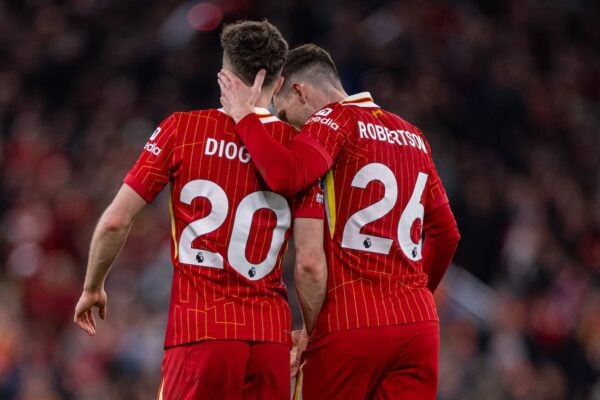
For Andy Robertson, maybe it will be remembering how he once called Jota “the most British foreign player I’ve ever met” because he’d spend hours watching horse racing and pretending to know everything about it.
For some, it will hit hardest in the middle of a match. For others, it will creep in months later, when everything is supposed to feel normal again. None of it means anyone feels the loss more or less.
What matters is they give each other the space to grieve in their own ways, without judgment or expectation. In moments like this, unity isn’t about everyone reacting the same. It’s about understanding that nobody walks through it alone.
The reality of grief in football
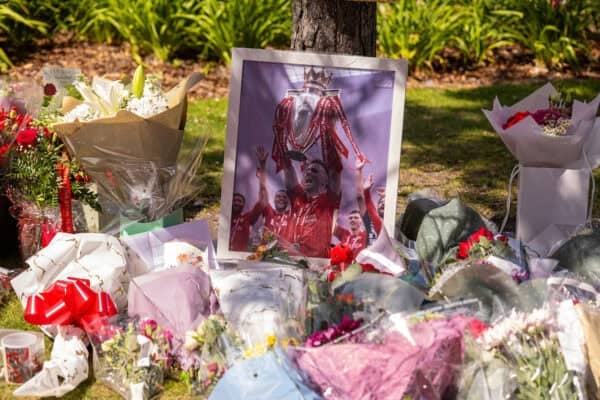
It’s easy to forget that for all the noise and spotlight, this is still a workplace. The training ground is no different from any other staff room or office when something like this happens.
Teammates are colleagues. The dressing room is where people come to do their jobs. And like any working environment, there will be cups of tea left half-finished, empty chairs, and reminders that footballers are just people trying to get through the day with some dignity.
No amount of fame or salary insulates them from the reality that they’ve lost someone they shared their lives with.
In any other job, you might be able to take time away, to step back, grieve privately, and slowly find your feet again. But for a footballer, there is no simple way to pause. The fixtures don’t stop.
Even if every player felt they couldn’t face it, the team would still have to turn up and play. That doesn’t make them braver or more stoic — it just makes the reality of their profession harder to avoid.
They are human beings in a workplace like any other, except theirs happens in front of millions.
When the games return

Pre-season has already been disrupted. The start has been delayed, with players being staggered in. The intensity of these weeks is what sets the tone for the whole campaign — how fit they are, how focused, how together. Some will throw themselves into the work just to feel normal again.
Others will find it impossible to concentrate. And that is where Slot will be tested most because no drill or tactical session will matter if he can’t first help them carry the weight of what they’ve lost.
Pre-season is usually a time of optimism. This year, it will feel as if something vital has been knocked out of place. Training will be quieter. The banter will come a little slower.
Every player will feel that same disbelief when they remember he isn’t just late or away on international duty. He’s gone. And somehow, they still have to lace up their boots and get ready for a season.
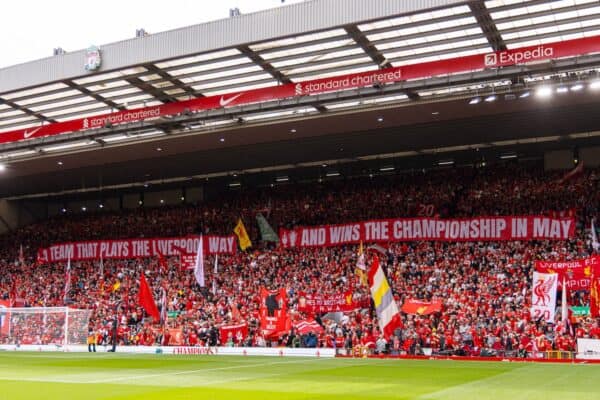
When Liverpool walk out against Bournemouth on that first Friday night, it will be a collision of emotions Anfield has known before — pride, sorrow, defiance. The flags will be everywhere, a sea of red scarves held aloft.
The Kop will belt out “Bring on the champions, bring on the champions,” because that’s what the supporters have waited all summer to sing.
And then, just as loud, they’ll sing about Diogo: “He’s a lad from Portugal, better than Figo don’t you know, his name is Diogo.” His song will roll around the stands long after the whistle, carried by thousands who need to feel they’re part of something bigger than grief.
There will be a moment in that game — maybe more than one — when the result simply won’t matter, when players will pass the ball without purpose because the stadium is somewhere else.
That’s what will make it harder for them and for Slot. Because this is football stripped back to its most human core.
The hardest lesson of all
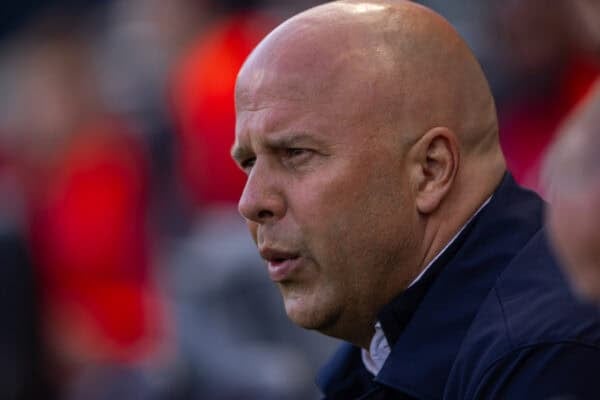
It won’t be the tributes on television or the black armbands that make this real. It will be the small gestures: the shirts hung in tribute, the condolence messages pinned to the walls, the hush before the anthem, the applause in the 20th minute.
These are the moments that remind everyone how much he was loved — and how much he’ll be missed.
For Slot, this will be the hardest lesson of all. There is no script for guiding people through something so raw. No precedent to lean on. He can’t lead by instinct alone. His obstacle isn’t just about holding the squad together. It’s about finding the balance between compassion and expectation, between honouring someone they loved and somehow carrying on.
And maybe that is the most honest truth about leadership: you don’t get to pick when it tests you, or how ready you feel when it comes.
Slot doesn’t need to be perfect. He doesn’t need all the right words—because he’s already shown that what matters is his humanity, not his eloquence. His players won’t expect that.
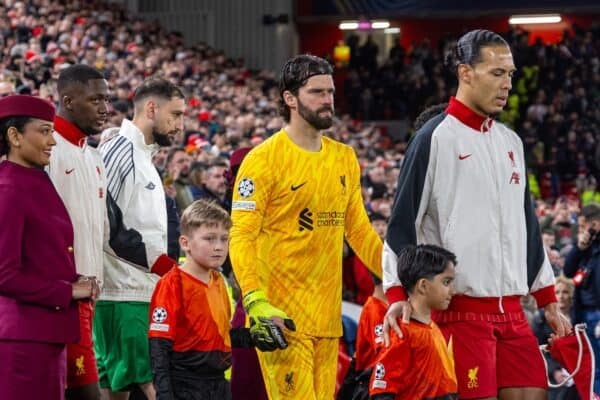
They’ll just need him to be present. To hold space for the sadness while reminding them that when the time comes, it’s still okay to smile, to train, to compete, and to find joy in the game again.
Because this is what it means to lead without a script. There is no handbook for this, no borrowed story to follow. Only the instinct to care, the courage to be vulnerable, and the trust that together, they will find their way through.
Whatever Liverpool achieve this season, part of Slot’s legacy will be shaped not by what he wins but by how he helps people find their way through something no manager prepares for.
That’s the real measure of a club. And that’s the real measure of the people who lead it. Because here, more than anywhere, nobody has to walk alone.
“To everything there is a season, and a time for every purpose under the heaven… a time to weep, and a time to laugh; a time to mourn, and a time to dance.” — Ecclesiastes 3:1–4

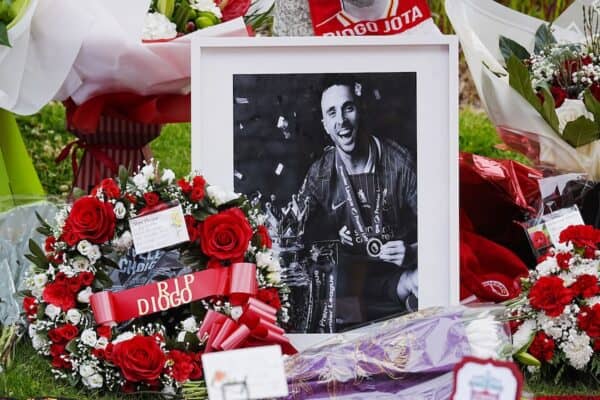


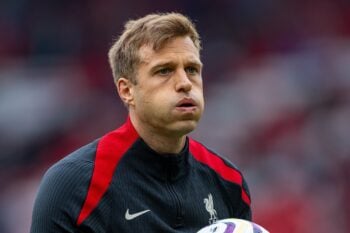

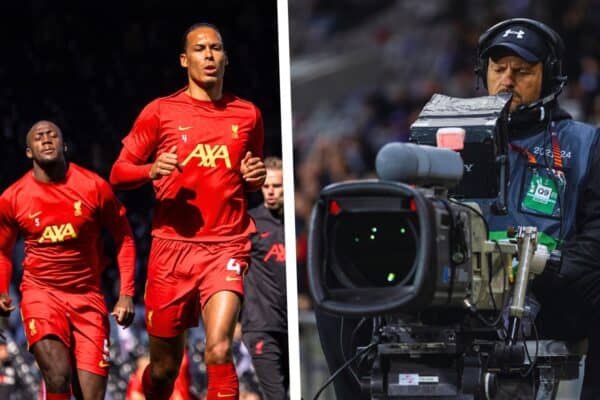
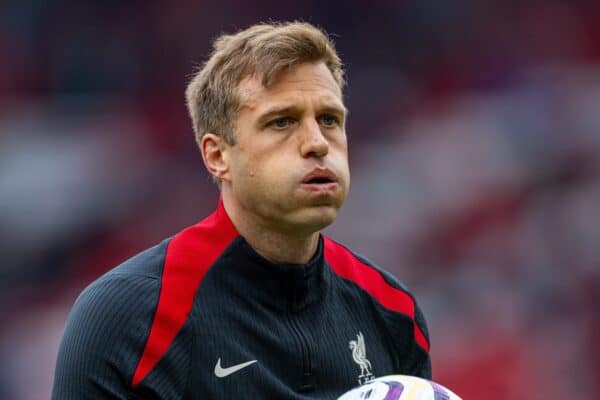


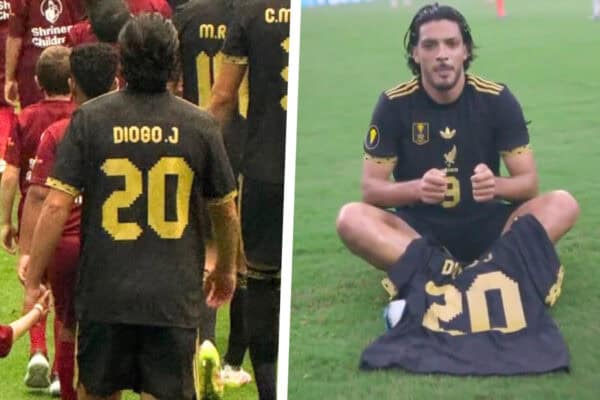

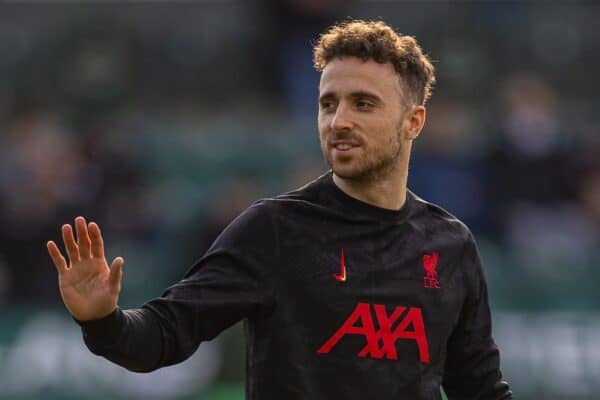





Fan Comments